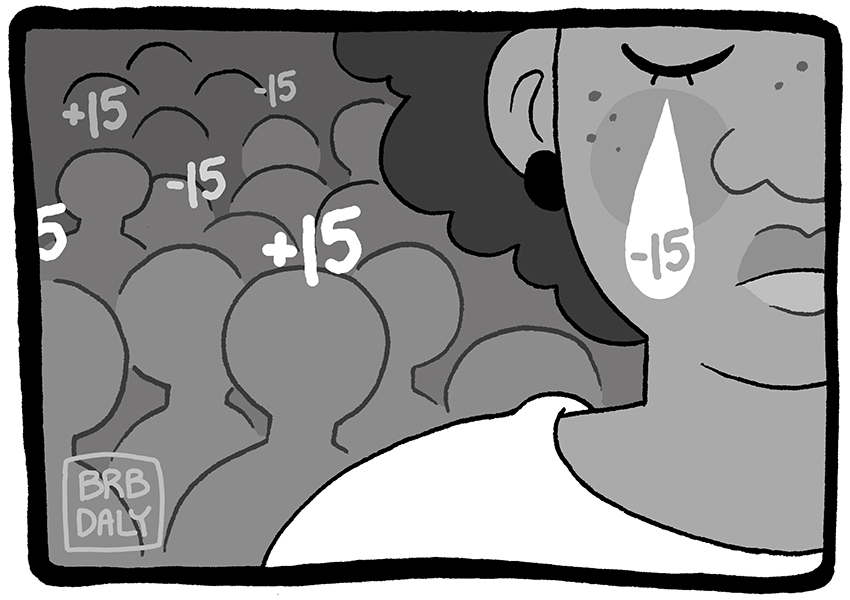Radio-television-film freshman Alma Zamora has always struggled to maintain a healthy weight, so her mother hoped she would gain a few pounds when she came to UT. Instead, the opposite happened. Zamora guesses she’s lost about five pounds — a considerable amount for her already small frame.
“I’ll be so stressed that I lose my appetite, or when I finally have time to eat, the dining hall is already closed,” Zamora said.
Unhealthy weight loss does not seem to be advertised as heavily as the “freshman 15,” but Zamora’s case is not an isolated one. Civil engineering sophomore Hugo De Santiago said he lost around 20 pounds as a freshman. He also wanted to gain weight.
“Throughout the year, my eating habits changed a little bit because of the (Castilian) cafeteria,” De Santiago said. “It closed way too early, and the food was always the same … so I didn’t really want to eat that much. By the second semester, I had my harder classes … so there was more stress involved. I noticed my weight was going down.”
University Health Services dietician Jennifer Barnoud said stress can spur loss of appetite or overeating, depending on the person. The stress hormone, cortisol, decreases appetite by setting off an alarm within the body that tells it to spend energy combating the problem rather than eating.
“It’s going to divert energy away from the digestive tract to be able to fight the bear or run away from the environmental threat, even if that threat is only an exam the next day,” Barnoud said. “But it doesn’t mean that we don’t need to continue eating … because not getting enough nutrition is further going to enhance that stress response and increase it.”
Zamora said her weight loss makes her feel “sluggish,” and De Santiago said a lack of energy from malnutrition caused him to take daily naps his second semester of freshman year. Barnoud said excessive weight loss can also cause dizziness, digestion and concentration difficulties, or an onset or worsening of depression and anxiety symptoms. There is also a risk associated with mortality.
“Even if your BMI is overweight, your mortality rate is still going to be much lower than that of somebody that’s underweight,” Barnoud said.
To maintain a healthy weight, Barnoud suggests students plan lunch breaks, carry snacks and eat every three to four hours. She recommends busy students set reminders for when it’s time to eat so they don’t forget, and said students wanting to gain weight may want to try higher calorie drinks or nutrition supplements. She also recommends a balanced plate.
“There’s a big meta analysis that shows diets … high in whole grains, fruits and vegetables and fish support significantly less psychological distress,” Barnoud said. “I interpret that as having a higher tolerance to stress, so … making sure you’re still getting those nutrient dense foods will help you tolerate it better. That same study also showed up to a 35 percent risk reduction for depression.”





















